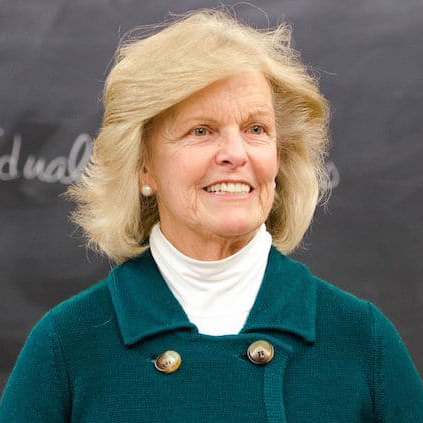|
Getting your Trinity Audio player ready...
|
During the same week that Franciscan University of Steubenville held a conference seeking solutions to the growing problem of anti-Semitism, 1,919 academic sociologists signed an open letter denouncing Israel and the Jewish people. Several of the signers of the anti-Semitic letter are current professors on Catholic campuses here and abroad.
Demanding “an immediate ceasefire,” the 1,919 sociologists wrote that they “unreservedly condemn” what they describe as “the latest violence against the Palestinian people in Gaza and the West Bank at the hands of the Israeli regime.” Ignoring the fact of the October 7th atrocities committed by Hamas death squads in Israel, the sociologists claim that they are “aligning themselves with these freedom struggles.”
Claiming that Israel is “targeting hospitals and ambulances, members of the press, universities, schools and relief offices,” the sociologists—most of them from elite colleges and universities as varied as Boulder and Berkeley, Harvard and Holy Cross, Boston College and Boston University, as well as Santa Cruz and San Francisco, Pitt and Princeton, and a long list of others—including Georgetown and Notre Dame—have called on their colleagues “to stand in solidarity with Palestinians and against settler colonialism, imperialism, and genocide.”
Orthodox. Faithful. Free.
Sign up to get Crisis articles delivered to your inbox daily
It is not surprising to those of us who have been part of the sociology world for the past few decades that such a despicable letter would emerge from a gathering of sociologists. The discipline has become what the late sociologist Irving Louis Horowitz described as: “a gathering of individuals who have special agendas, from gay and lesbian rights to liberation theology.” In his 1994 book, The Decomposition of Sociology, Horowitz writes: “any notion of a common democratic culture has become suspect. Ideologists masked as sociologists attack the very notion of a universal scientific base as a dangerous form of bourgeois objectivism, or worse, as an imperialist pretention.”
While few would be surprised that sociologists would write such a letter, it is surprising the Catholic college and university professors would sign on and support it. There were two professors and one graduate student from Boston College who signed the letter—Professors Josh Seim and Ali Kadivar, and Jon Blum, a Boston College Ph.D. student. Notre Dame signers included Professor Abi Ocobock and Ph.D. student Taylor Hartson. Professor Sadia Saeed of the University of San Francisco signed the letter, as did three professors from Georgetown: Gözde Güran, Carla Shedd, and John L. Esposito, who is listed as a Distinguished Professor at Georgetown University.
Referring to the massacre of October 7th as a “struggle for freedom” is just the latest example of what Senator Daniel Patrick Moynihan referred to as sociologists’ “defining deviancy down.” Senator Moynihan first used that term at a gathering of sociologists at their annual meeting. He was trying to warn them. He knew that the study of deviant behavior, once one of the most important subdisciplines within sociology, became “simply a term of moral opprobrium; all social norms were really bourgeois norms; opposition to such norms represented alternative lifestyles at the least and revolutionary consciousness at the most.” Horowitz recognized more than four decades ago that such a worldview denies an external world of commonly shared experience. Referring to the massacre of October 7th as a “struggle for freedom” is just the latest example of what Senator Daniel Patrick Moynihan referred to as sociologists’ “defining deviancy down.”Tweet This
In one of the first sociology texts, Emile Durkheim warned that moral unity could be assured only if all members of a society were anchored to some common assumptions about the world around them. Durkheim knew that without these assumptions, a society was bound to degenerate and decay. The function of society is to constitute a regulative force, setting limits on individual actions—recognizing that deviance is an integral part of all societies because it affirms cultural norms and values. Sociologists like those who signed that letter lost their way more than four decades ago when they began to try and convince policymakers that “high crime rates were an expression of capitalist disintegration, and criminal behavior was simply a covert expression of revolutionary action.”
As sociology has become balkanized along political lines, driven by an expanding number of interest groups, Horowitz predicted the discipline itself would become a “series of demands for correct politics rather than a set of studies of social culture.” He was right.
Horowitz understood that the root of the problem in sociology was epistemological—the abandonment of reason. He knew that the real problem in sociology is that the discipline no longer looks at reality. Replacing the real world with a utopian future of classlessness and equality of outcome for all—no matter the price—sociology has abandoned scientism as an official ideology, moving away from valuing an open economic marketplace and a liberal pluralism to embrace socialism and social welfare models.
In a reality-based world, those who signed the contemptible letter would be marginalized on their campuses. But the truth is that many of their colleagues and their academic administrators are also hostage to their own professors. Perhaps it is time to look more carefully at what is happening on those campuses—especially the Catholic campuses.
[Photo Credit: Getty Images]
